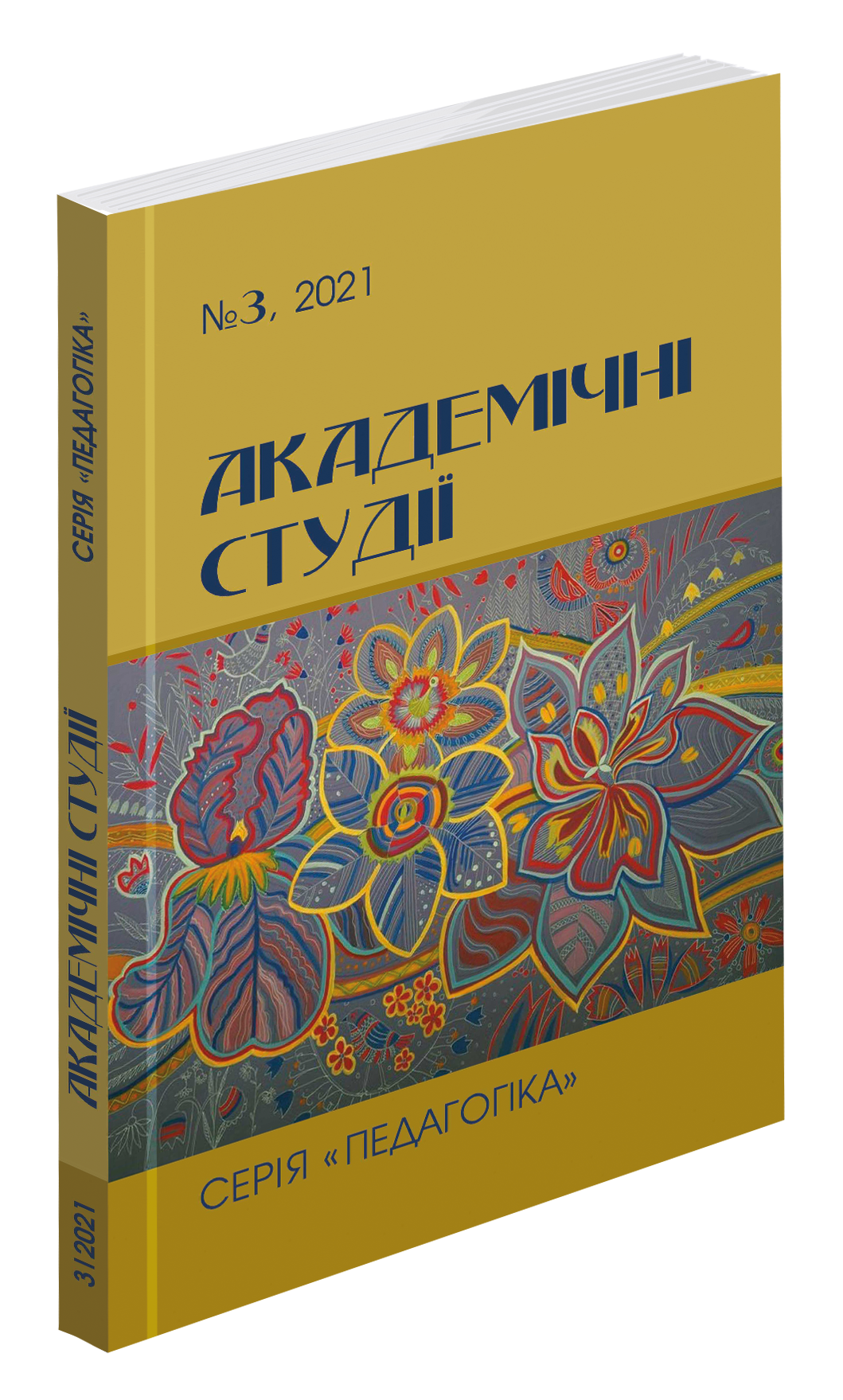Abstract
The author determined that among the priority areas of development of the national education system, modern pedagogical science recognizes the polycultural vector as one that ensures the fulfilment of two tasks: Ukraine’s entry into the European educational space and solving the internal existence of a polycultural society. This problem, the author states, in the historical and pedagogical discourse is considered primarily in a comparative aspect, but the domestic experience of “polyculturalism” has found itself on the sidelines of scientific research. However, such a study, the author believes, makes it possible to find out the dynamics of the development of the ideas of polycultural education in the national pedagogical thought of the late XX – early XXI centuries, to establish the main trends of this process and to determine the problems that need to be solved today. Based on the opinions of national scientists about the importance of applying the method of periodization in historical and pedagogical research, the author presents her own periodization of the development of ideas in the field of culture in national pedagogical discourse. Based on certain factors (features of the political, economic and socio-cultural life of Ukraine in a certain chronological framework and the actualization of the problem in educational regulatory documents, the presence/absence of scientific publications on a specific topic in the pedagogical discourse; directions, trends in the development of the problem and the practical groundwork of Ukrainian scientists and teachers practitioners, etc.), such a periodization of the development of the ideas of polycultural education in national pedagogical thought has been developed: 1st period – theoretical-cumulative (late 80s of the XX century – the first decade of the XXI century) IInd period – practice-oriented (the second decade of the XXI century – continues till the present time) certain chronological periods were preceded by a preparatory stage (60–70s of the XX century), at which (within the framework of the concept of international education) the embryos of the ideas of polyculturalism were formed. However, within the framework of the concept of proletarian / socialist internationalism, the embryos of the ideas of polyculturalism (solidarity, equality, brotherhood) were significantly limited by the class principle. It is proved that Ukrainian scientists should create such a model of polycultural education that would reflect the peculiarities of the state development of Ukraine, its multinational composition, but would reflect the general tendencies of the European community in their desire for sociocultural dialogue. This approach will be productive only if you take into account your own positive pedagogical past.
References
Бахов І. С. Тенденції розвитку полікультурної освіти у професійній підготовці фахівців Канади і США (друга половина ХХ – початок ХХІ ст.) : дис. … д-ра педагог. наук : 13.00.04. Київ, 2017. 624 с.
Касперський А. В., Бондаренко І. М. Національно-патріотичне виховання майбутніх учителів технологій. Збірник наукових праць Кам'янець-Подільського національного університету ім. Івана Огієнка. Серія : Педагогічна. 2015. Вип. 21. С. 197–200.
Кендзьор П. І. Полікультурне виховання учнів у системі діяльності загальноосвітнього навчального закладу : дис. … д-ра педагог. наук : 13.00.07. Київ, 2017. 504 с.
Сухомлинська О. В. Періодизація педагогічної думки в Україні: кроки до нового виміру. Історико-педагогічний процес: нові підходи до загальних проблем. Київ : 2003. С. 47–66.
Чубук Р. В. Наукові ідеї превентивного виховання в історії педагогічної думки (ХІ–ХVІІІ ст.). Наукові праці [Чорноморського державного університету імені Петра Могили комплексу «Києво-Могилянська академія»]. Серія : Педагогіка. 2014. Випуск 234. Том 246. С. 77–82.
Чумак Л. В. Полікультурне виховання учнів середніх (5-8) класів в умовах родинно-шкільного освітнього простору : автореф. дис. … канд. педагог. наук : 13.00.07. Тернопіль, 2011. 22 с.
Ярова О. Б. Тенденції розвитку початкової освіти в країнах Європейського Союзу : дис. … д-ра педагог. наук : 13.00.01. Київ, 2018. 531 с.

